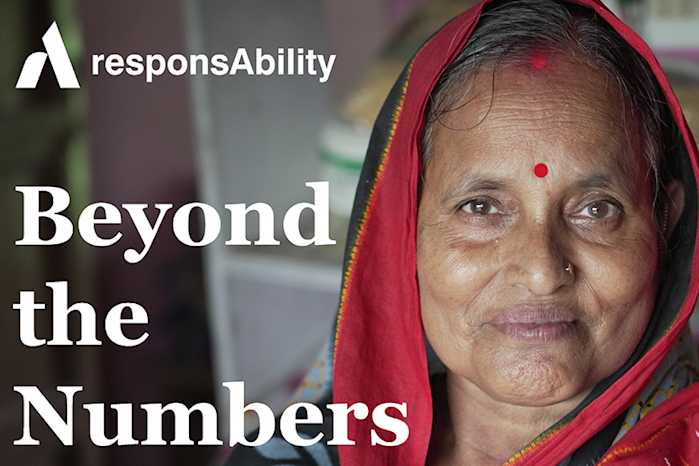Interview with Jörg Frieden, Chairman of the Board SIFEM
Welcome Mr. Frieden and thank you for speaking with us. To start, could you provide a brief introduction to SIFEM?

The Swiss Investment Fund for Emerging Markets (SIFEM), Switzerland’s development finance institution (DFI), pursues impact-driven investments in private equity and financial institutions across emerging markets. Fully owned by the Swiss Confederation, SIFEM aligns with Swiss government development objectives, under the oversight of a board of directors appointed by the Federal Council. Its investment management is entrusted to responsAbility, which oversees both the existing portfolio and new investments. With a USD 1 billion balance sheet, of which two-thirds is allocated to equity, the Swiss Investment Fund for Emerging Markets adopts a patient, long-term approach, reinvesting returns into new projects without reliance on subsidies or concessional finance, to promote sustainable growth.
How has SIFEM's approach to impact investing evolved since its establishment?
SIFEM has always followed a long-term, patient approach to impact investing. Our focus has been on equity investments, working closely with trusted local partners, such as fund managers and financial institutions, to catalyze and mobilize private capital at fund level, thereby creating meaningful impact. While our core principles have remained consistent, the global landscape has changed significantly since we started. In the past, there was greater optimism about the rapid development of middle-income countries. However, today we are navigating a more complex environment, influenced by geopolitical tensions, protectionist temptations, slower economic growth in some countries and much higher growth in others. In response SIFEM has adjusted its portfolio, balancing relatively safe investments in larger established funds with riskier investments in new initiatives or more challenging countries. With its extensive network, responsAbility has helped to manage this risk-adjusted approach.
Looking ahead, which sectors or regions do you see as having the greatest potential for impact, and how is SIFEM positioning itself to capitalize on these opportunities?
We continue to see significant potential in regions like Sub-Saharan Africa, where the need for job creation and gender equality is particularly urgent. Our investments are focused on creating employment opportunities and increasing the participation of women in the workforce, which are crucial for achieving long-term, sustainable growth. Sector-wise, we are increasingly directing our efforts toward projects that promote energy efficiency and sustainable resource management. These areas are vital for both local development and global sustainability. In collaboration with other development finance institutions, we will provide technical assistance to help companies adopt sustainable practices and technologies. By doing so, we aim to enhance the long-term impact of our investments.
What makes SIFEM’s model distinct compared to other development finance institutions?
Unlike many DFIs that operate as standalone government-backed institutions, SIFEM outsources its investment management to a private asset manager with expertise in impact investing and emerging markets. responsAbility handles SIFEM's investment strategy, due diligence, portfolio management and technical assistance, allowing SIFEM to leverage private-sector expertise and remain flexible in its operations. This model is also more cost-effective due to its lean structure, relying on responsAbility to minimize overhead and administrative burdens. This efficiency allows SIFEM to channel more resources toward investments that deliver meaningful development impacts, rather than sustaining a large, in-house operational framework.
How does SIFEM’s work contribute to closing the USD 4 trillion annual financing gap identified by the United Nations to achieve the Sustainable Development Goals (SDGs) by 2030?
The USD 4 trillion figure highlights the significant gap between the financial resources needed to meet the SDGs and the current level of investment in developing countries. While it is a daunting number, it is important to remember that external financial solutions alone will not resolve the challenges faced by emerging and low-income economies. DFIs like SIFEM play a crucial role in creating the conditions necessary for sustainable development. Our mission is to empower local entrepreneurs—both men and women—to seize opportunities, create jobs, and add value to their communities. By facilitating these opportunities, we not only stimulate economic growth but also build trust in local policies, institutions, and market frameworks. DFIs act as catalysts, helping to establish best practices that local investors can adopt and replicate, thereby magnifying the impact of our investments.
What role do you believe DFIs and SIFEM in particular can play in creating long-term, sustainable growth in emerging markets?
DFIs have a unique and vital role in bridging the gap between public development goals and private sector investment. Our primary focus is to create stable and secure investment environments that encourage both local and international investors to participate in the development of emerging markets. At SIFEM, we empower local entrepreneurs by providing them with the necessary capital and support to succeed. Our long-term investments not only create jobs and enhance livelihoods but also promote sustainable business practices that are essential for lasting development. Ultimately, DFIs like SIFEM pave the way for more private capital to flow into emerging markets, which is key to achieving sustainable, long-term growth in these economies.

Beyond the Numbers
In our 2024 impact report, we connect the dots between the numbers and the narratives, explaining the meaning behind key impact indicators and sharing the personal stories that bring them to life. Dive into the latest insights from our in-house experts on Climate Finance, Financial Inclusion, and Sustainable Food, and enjoy an exclusive interview with the Chairman of the Board at SIFEM.
